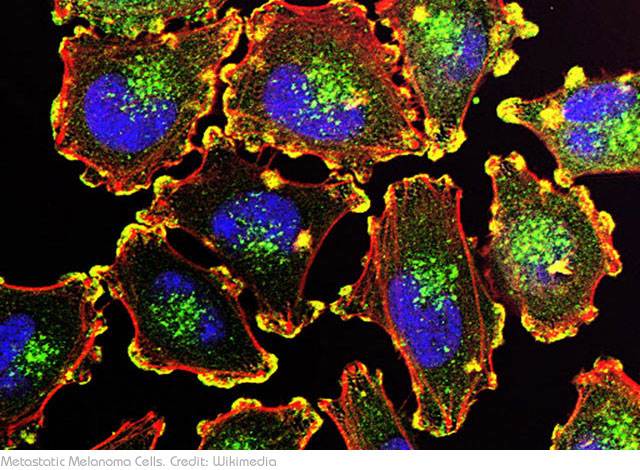Typically, cancer therapies are a ‘generic’ thing — the same treatment is applied regardless of what kind of cancer it is, which usually means chemotherapy, radiation therapy, immune-based therapy, or a combination. This is probably one of the reasons the treatments aren’t always effective. Each tumor is different, so each should be treated accordingly based on what characterizes it.
This is what personalized treatment is all about. And as it happens, a small study involving just 6 patients has shown that personalized cancer vaccines are safer and more effective than other treatments, including immune-based therapies which are typically designed to train a person’s immune system to seek and destroy tumors.
Current immunotherapies either face the problem of not having immune cells to target (because in a lot of cancer patients, immune cells are no longer present), or having attackers that go too far and end up killing healthy cells instead of cancerous cells. This has prompted other researchers to turn to neoantigen vaccines as an alternative treatment.
The process of creating neoantigen vaccines starts off by studying tumor cells and sequencing their DNA. Scientists then compare this with healthy cells and once they find mutations that are only present in tumors, they zero in on the mutations that make antigens — the molecules that immune cells grab on to — then load the vaccine with these antigens (also referred to as long peptides).
In the study led by Dr. Catherine Wu of Dana-Farber Cancer Institute in Boston, their vaccine was packed with 13 – 20 different peptides, depending on how many antigens a patient’s tumor is likely to attract.
The vaccine was given to six melanoma patients whose tumors had been surgically removed but remained at high risk for recurrence. On the average, administration of the vaccines began 18 weeks after surgery.
At around 2 years after vaccination, four out of the six cancer patients showed no signs of cancer recurrence. On the other hand, in the remaining two patients whose cancer had already spread to their lungs even before the vaccine was given, the cancer recurred. After being given additional treatment in the form of immunotherapy drug Keytruda, however, both patients have also remained cancer-free.
Based on the results of the study, a personalized neoantigen vaccine has the potential to solve two major obstacles that are keeping cancer therapies from being effective. First is the diversity of tumors, meaning, they’re made up of cells with various characteristics, which is what allows cancers to evade drugs which target only a specific genetic aberration. Because the vaccine contains a number of different neoantigens from the tumor, it is able to target tumor cells of different genetic types.
Second, the vaccine is able to generate an immune response exclusively from targeted cancer cells. In other words, it is able to stay away from healthy cells and tissues, and only results in a few minor side-effects such as flu-like symptoms, fatigue, rashes, and irritation at the site of the vaccine injection.
In spite of the study’s encouraging results, it has to be mentioned that there was no control group to compare the results with, which sort of dampens the euphoria about it somehow. The study would have been a bit more conclusive if there was another group who only received standard treatment and not the vaccine. This way, it would have been easier to show that it was indeed the vaccine not the standard treatment that kept the cancer from coming back.
Nonetheless, the results are still considered a major achievment and the study, an endeavor worth pursuing further. It’s going to cost a lot, though. But as technology improves, it is hoped that sequencing and analyzing individual DNA to come up with customized vaccines shouldn’t have to cost too much. Otherwise, even if the vaccines do prove to be effective, they won’t truly be considered as such if only a few people can afford to benefit from it.
Disclaimer: This page contains affiliate links. If you choose to make a purchase after clicking a link, we may receive a commission at no additional cost to you. Thank you for your support!


Leave a Reply